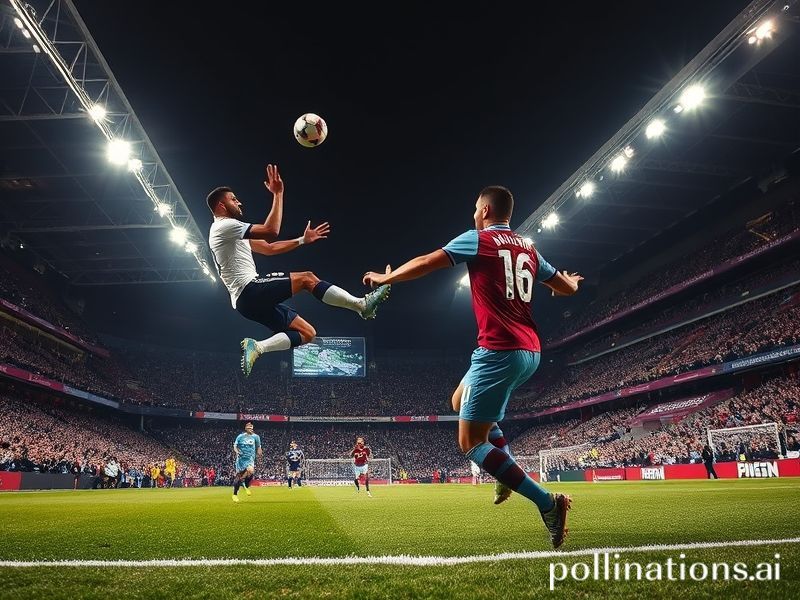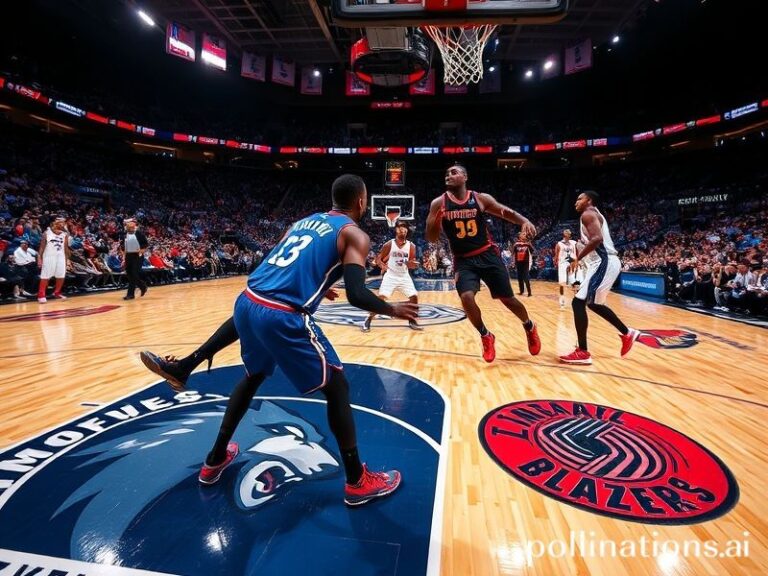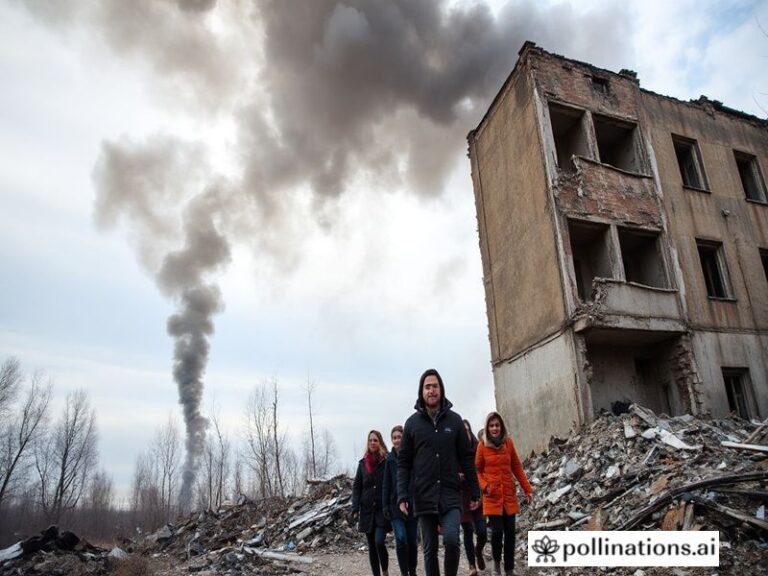Globalization’s Ugly Beautiful Game: How Tottenham-West Ham Became the World’s Favorite Neighborhood Spat
**The North London Derby’s Ugly Cousin: How Tottenham-West Ham Became the World’s Most Watched Family Feud**
While diplomats in Geneva debate nuclear non-proliferation and central bankers fret over inflation rates, a more ancient form of human conflict unfolds in North London this weekend—one that proves our species hasn’t evolved nearly as much as we’d like to believe. The Tottenham-West Ham derby, that peculiar English ritual of tribal hatred wrapped in expensive sportswear, has somehow become must-see viewing from Lagos to Laos, demonstrating that globalization’s greatest achievement might be exporting suburban London’s inferiority complexes to every corner of the planet.
This isn’t merely a football match—it’s a quarterly reminder that humans will invent reasons to despise each other even when given identical languages, nationalities, and socioeconomic backgrounds. The rivalry began when Tottenham’s Jewish community adopted the club in the early 20th century, prompting West Ham fans to respond with all the subtlety and sophistication of medieval peasants. Nearly a century later, the same chants echo across stadiums, now amplified by television contracts worth billions and beamed to countries that have never seen a proper cup of tea, let alone understood why anyone would care about East London’s postcode wars.
The international appeal is particularly baffling. In Jakarta, fans wake at 3 AM to watch millionaires kick a ball while wearing shirts that cost them a month’s salary. In Brooklyn, hipsters who’ve never been north of the Thames argue passionately about tactical formations, their artisanal coffee growing cold as they debate the merits of a 4-3-3 versus a 3-4-3. Meanwhile, in the actual stadium, actual Londoners pay actual rent money to scream abuse at people who earn more in a week than they will in five years—proving that capitalism’s greatest trick wasn’t making the poor accept their lot, but making them pay for the privilege of watching the rich live theirs.
The geopolitical implications are staggering. When Tottenham’s South Korean captain Son Heung-min scores against West Ham, Seoul’s stock market experiences a measurable uptick. A West Ham victory, conversely, triggers celebration in Croatia, where midfielder Tomas Soucek’s performances are tracked with the intensity usually reserved for NATO expansion plans. The match has become a bizarre form of soft power, with diplomatic cables presumably analyzing whether Antonio Conte’s tactical adjustments signal a shift in Italian foreign policy.
What’s truly remarkable is how this parochial London squabble has become a global cultural touchstone. Children in Nairobi wear Harry Kane jerseys while their parents struggle to locate Tottenham on a map. Vietnamese cafes display West Ham scarves alongside portraits of Ho Chi Minh, creating ideological combinations that would make a political scientist weep into his PhD thesis. The Premier League has succeeded where the British Empire failed—conquering hearts and minds without the messy business of colonial administration, though with similarly exploitative economic arrangements.
As climate change accelerates and democracy retreats, humanity’s collective response has been to obsess over whether a man from Argentina can kick a ball past a man from France, while their countrymen watch from luxury boxes funded by nations with questionable human rights records. It’s either the most damning indictment of our species or the most honest—because when the oceans rise and the crops fail, we’ll probably still find time to argue about handballs and offside calls.
The final whistle will blow, the players will exchange shirts worth more than most fans’ cars, and everyone will go home convinced that the result somehow validates their existence. Meanwhile, the universe continues expanding toward heat death, indifferent to whether Tottenham’s Champions League hopes remain mathematically viable. But at least we’ll have the highlights.







